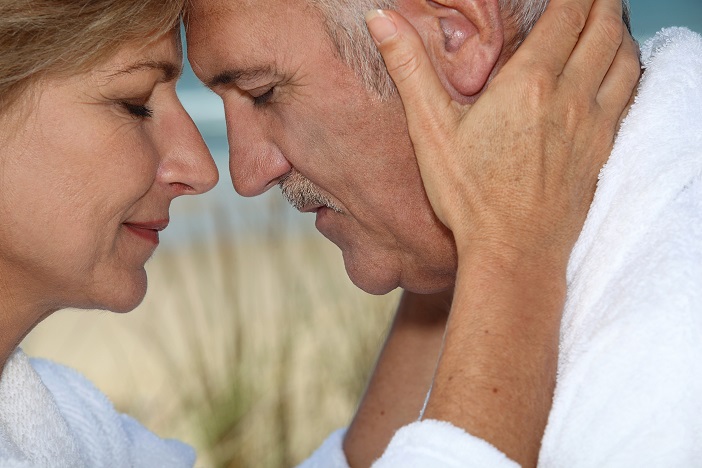
 Sexuality is not limited to intimate relations with a partner. Sexuality encompasses self-esteem, body image, relationships with others and zest for life. Sexual thoughts and feelings are an important part of daily life. Intimacy includes the way you express yourself in relationships, like hugging, kissing, touching, expressions of tenderness, and body language.
Sexuality is not limited to intimate relations with a partner. Sexuality encompasses self-esteem, body image, relationships with others and zest for life. Sexual thoughts and feelings are an important part of daily life. Intimacy includes the way you express yourself in relationships, like hugging, kissing, touching, expressions of tenderness, and body language.
Cancer treatment can cause a variety of sexual changes. Surgery, chemotherapy, radiation therapy or hormone treatment result in potential changes to all phases of sexual response. Psychological responses to the disease and treatment, such as grief, fear and anxiety can make it hard to feel close to your partner. Sometimes, other factors, such as cancer treatment side effects, may negatively affect a patient's sexual health. Subtle feelings related to weight fluctuations, changes in taste or smells, loss of hair, scars, and other body image concerns affect the way you feel about yourself and your interest in sex.
Changes in your sex life can take time and patience to remedy. The remedy may not work immediately; it will take time to experience improvement. Some changes may be short term and others may be permanent. Talking to your healthcare team before treatment can help you prepare for some of these changes. Talking to them throughout treatment will help connect you with the resources you need.
How cancer treatment affects sexuality in men | Dana-Farber Cancer Institute - 6:40 minutes
Pelvic radiation, surgery for prostate cancer, and even bone marrow transplants are treatments that can cause loss of desire and affect sexual function. Sharon Bober, Director of the Sexual Health Program discusses treatment options for men, including oral drugs and injection therapies for erectile dysfunction, and also talks about the importance of reaching out to your doctor to discuss these and other available treatment options.
These are just a few highlights from the Resource Library collection. Please click here to search our online catalog. For more information about the Resource Library and how to borrow materials, visit our website.
RIdley-Tree Cancer Center - Sex, Intimacy & Cancer - 1:00 hour
Scott McCann, PhD, LCSW, examines how cancer and cancer treatment can affect self-image, sexual functioning and intimacy. Ways to build and maintain intimacy and sexual activity while living with cancer are discussed. This lecture includes a frank discussion of sexual activities and is meant for adult audiences 18+.
Ohio State Wexner Medical Center- Improving your sex life during and after cancer treatment - 2:30 minutes
Sexual changes due to cancer are normal but you can still have a fulfilling sex life. A sex therapist at The Ohio State University Wexner Medical Center, Claire Postl helps patients and couples who are experiencing sexual problems during and after cancer treatment learn to improve their sexual health.
Leukemia & Lymphoma Society - Cancer, Sexuality, and Intimacy - 23:55 minutes
Sage Bolte, PhD, LCSW, OSW-C, from the Inova Health System in Fairfax, Virginia, discusses sexuality and intimacy concerns faced by cancer survivors and tips to deal with them, with Ken Miller, MD, a medical oncologist and LLS volunteer.
 Cancer can involve significant psychological, social, and economic challenges for patients and their families. How and if these challenges are addressed is an important aspect of a patient’s care plan. The Ridley-Tree Cancer Center employs clinical social workers who provide emotional and practical support for patients, their families, and their friends. Oncology Social Workers can provide advocacy and referrals as well as individual and family counseling services.
Cancer can involve significant psychological, social, and economic challenges for patients and their families. How and if these challenges are addressed is an important aspect of a patient’s care plan. The Ridley-Tree Cancer Center employs clinical social workers who provide emotional and practical support for patients, their families, and their friends. Oncology Social Workers can provide advocacy and referrals as well as individual and family counseling services.
Services are available at no cost and are available to anyone in our community, regardless of where they are receiving medical care.
For more information, call (805) 879-5690.